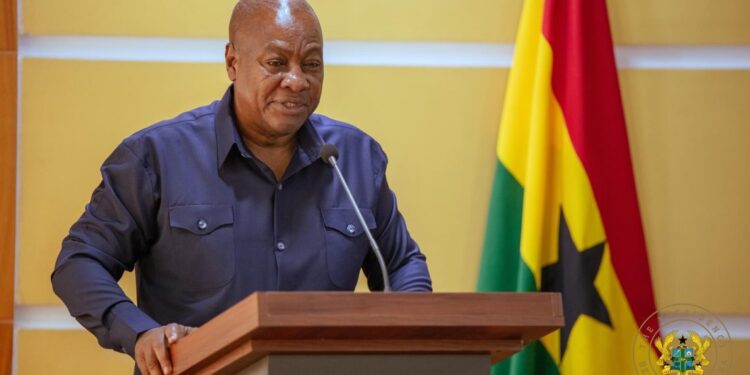President John Dramani Mahama has declared that the much-talked-about 24-Hour Economy initiative has evolved from a political campaign slogan into a comprehensive national strategy aimed at transforming Ghana’s economy.
Speaking at the official launch of the policy in Accra on Wednesday, July 2, 2025, President Mahama recounted how the idea captured public attention during the 2024 elections, giving Ghanaians renewed hope for job creation and economic growth.
“We have moved from slogan to strategy today. In 2024, the idea of a 24-hour economy captured national attention. It became a slogan of hope, a symbol that change was necessary and that it was possible,” he said.
The President stressed, however, that the real work begins with the implementation of the policy, urging all stakeholders to play their part in turning the vision into reality.
“Our task now is to ensure that the necessary change is with the implementation. This launch is not the end, but it is the beginning of a massive national mobilisation,” he added.
The 24-Hour Economy policy forms part of the NDC government’s broader strategy to modernise industries, create sustainable jobs, and enhance Ghana’s competitiveness on the global stage.
According to Presidential Advisor on the 24-Hour Economy, Dr. Goosie Tanoh, the policy is anchored on three key pillars: transforming production systems, improving supply chain efficiency, and building a skilled workforce ready to support a modern, round-the-clock economy.
Full implementation of the policy is expected to require around $4 billion (GHS 400 billion) over the next five years.
The government has already committed $300 million as seed funding, but private sector investment is expected to play a major role in financing the initiative.
The development of the policy followed extensive consultations with stakeholders, including businesses, labour unions, industry leaders, and the general public, to ensure it addresses the country’s economic challenges and reflects the aspirations of Ghanaians.
With the launch, government is set to roll out interventions nationwide, positioning the 24-Hour Economy as a tool to boost productivity, reduce unemployment, and build a resilient economy that operates around the clock.





































